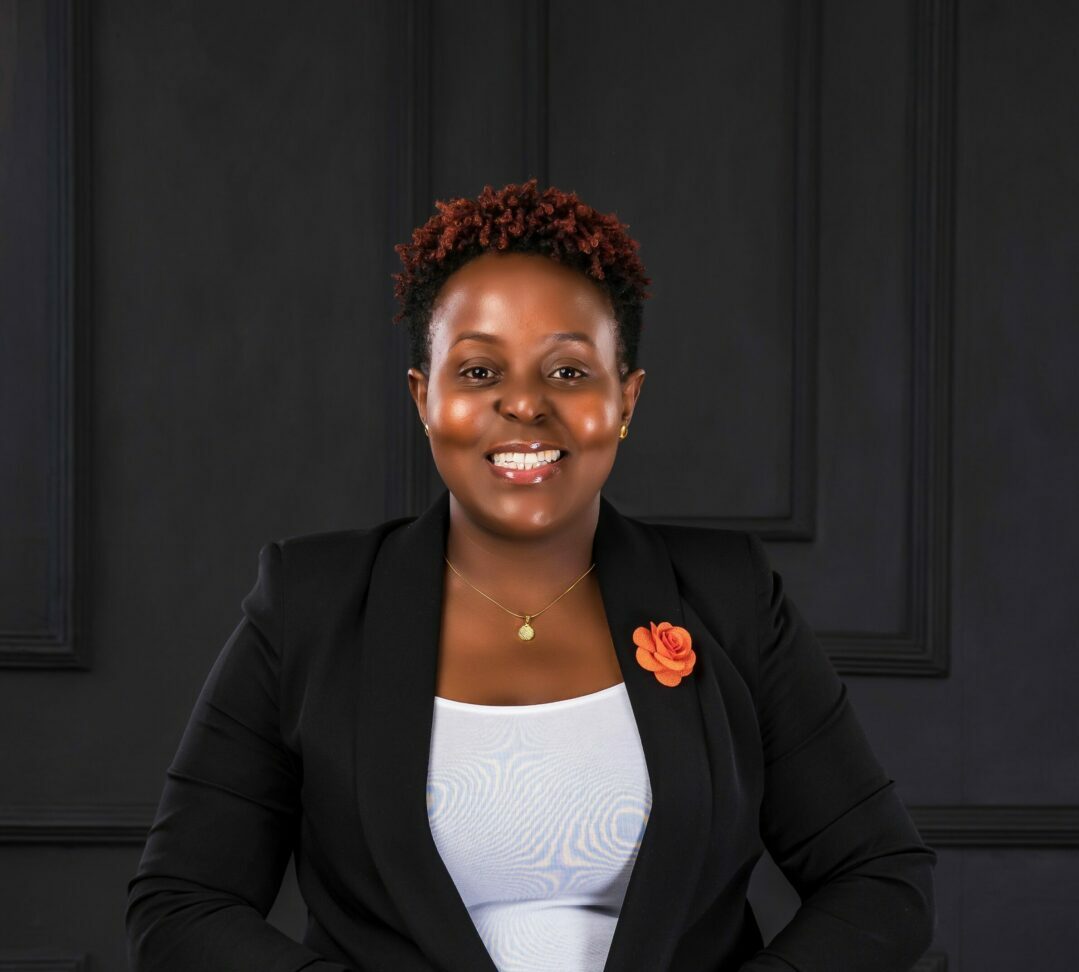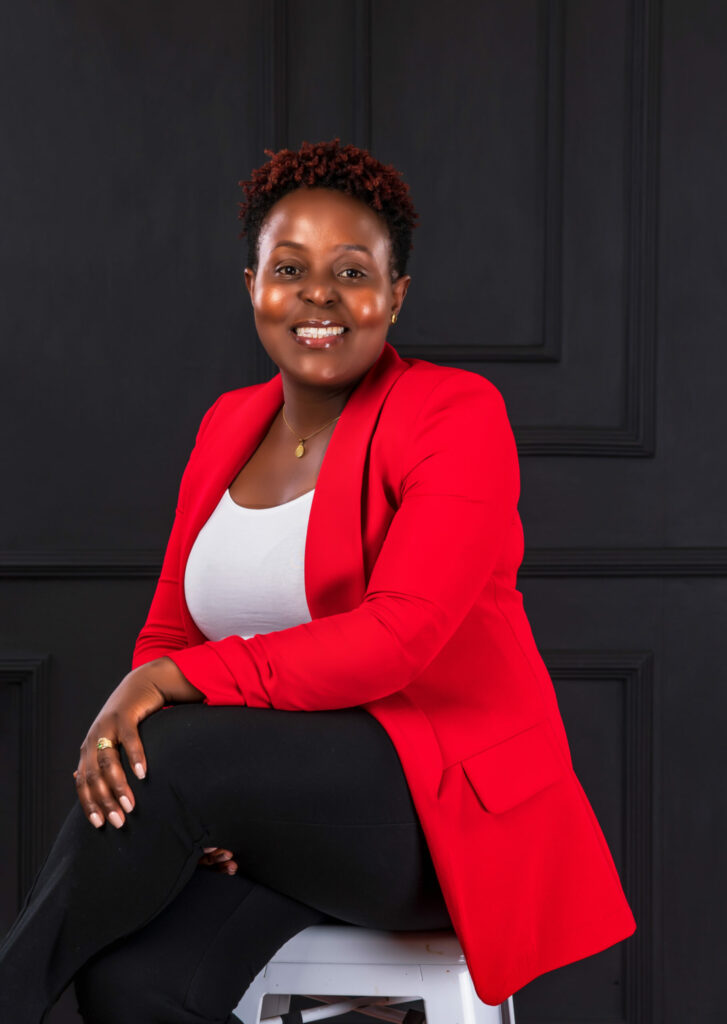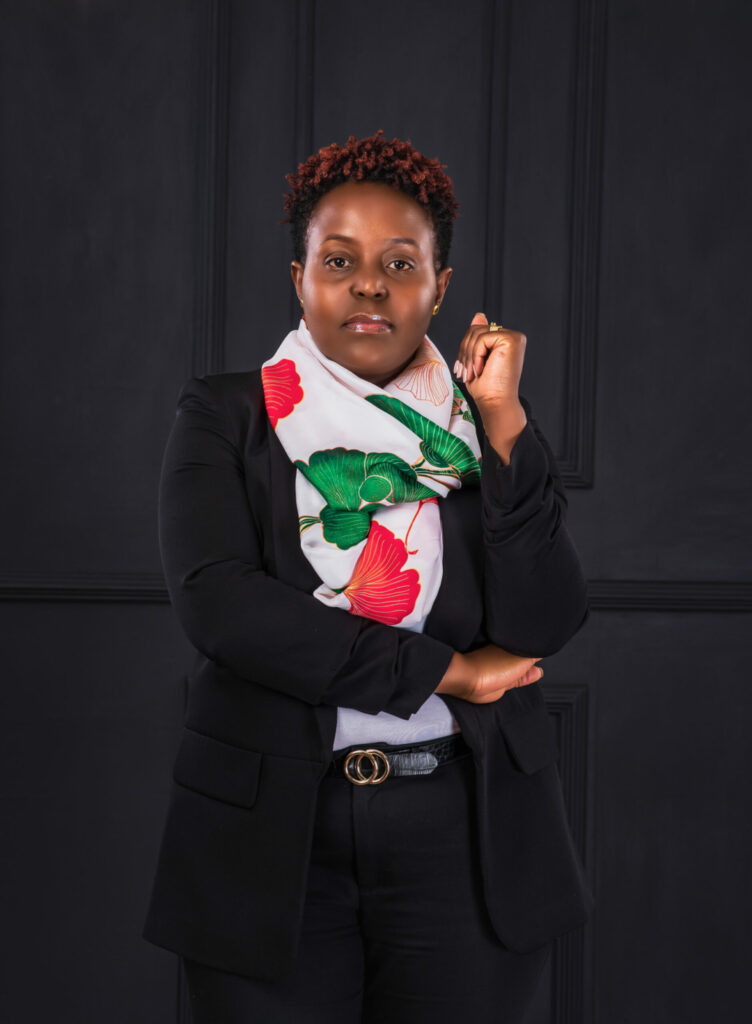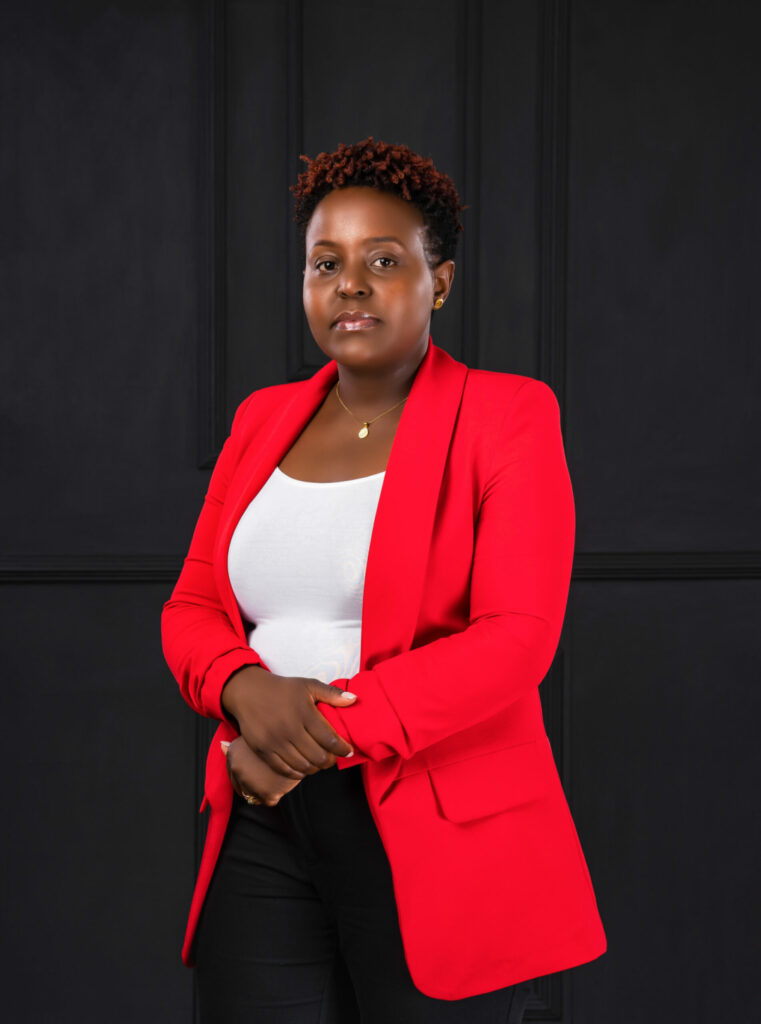advertisement
How Deborah Mutungi Drives Hospitality Industry

As I walked into the Sarova Panafric Hotel for this interview with Deborah Mutungi, Head of IT, Sarova Hotels & Resorts, I imagined how it was to work at a five-star hotel. Would it mean daily complimentary five-star lunches dining in the perfect temperature all year long because of the perfect air-conditioning? (You know, everything that comes to mind when you think about a five-star hotel). However, after the interview, I got the hang of how crucial yet challenging it is to be an IT executive at a five-star hotel.
PS: She had this interview after coming in at 2:00 am the previous night – or early morning – to support a team member burning the midnight oil. Something she says she is always ready for; is to be called in at any time or in this case, to volunteer to come in and help.
When you meet her, what stands out is her passion and commitment to mentoring the next generation of women in tech and tech leadership. During a hotel walkthrough, a couple of people stopped to ask for advice on behalf of their daughters. Being a leader in the space of IT in the hospitality industry, she understands how her journey to the top was; and how it has made it her responsibility to improve the environment for those aspiring to get to where she is.
advertisement
With over 16 years’ of experience in the IT Sector, Mutungi has been a big part of the tech revolution in the hospitality sector. She is always looking to make Sarova a leader in the industry. Having only missed out on the dxNova Woman of the Year award, her journey in tech leadership has only just begun and there is no limit to what she can achieve in the future.
Who is Deborah Mutungi?
Deborah is a wife, a mother, a daughter, a sister, a friend, a farmer, and a hiker. However, in this particular interview, I will wear my 9 to 5 hat which describes me as an IT professional who has navigated the dynamic landscape of the IT field for the past 16 years with a wealth of experience in driving digital transformation initiatives and leveraging technology to enhance business outcomes.I am the Head of IT for the entire Sarova group which includes this hotel (Panafric Hotel), Stanley, Woodlands, Imperial, Whitesands Beach, Mara Game Camp, Shaba Game Lodge, Lion Hill Game Lodge, and our latest wing, the Maiyan in Nanyuki. My journey in IT has been shaped by a relentless pursuit of excellence, a commitment to continuous learning, and a passion for innovation. I have enjoyed the drive; I have really enjoyed being in IT as I find it to be a very engaging career for me. Beyond my professional endeavours, my roles as a wife and mother has humbled me into developing qualities such as resilience, adaptability, and empathy. Balancing the demands of a career in IT with the responsibilities of family life has honed my time management skills, strengthened my interpersonal relationships, and filled me with a deep sense of purpose.
advertisement

What is your role at Sarova Hotels?
My current role at Sarova is captaining a team of very talented and excellent professionals in aligning the overall digital transformation journey to the strategic business objectives. This is anchored to our vision of ‘being the preferred hospitality company in ownership and management of hotels, resorts and lodges in the key markets of Africa.’ It is very key for us because the team needs to align with the vision, making my role very crucial to helping the hotel realise its targets.
advertisement
What does your typical day look like?
Interesting question (chuckles). My days are normally very varied and dynamic. However, I would say that my day starts at 5.30 am with a team of a very energised army of boys (my sons). This energy then transitions to the office. My day here typically starts with the hope of finishing the litre of my lemon water whose pursuit tends to end after two sips and quickly transitions to a cup of Kenyan tea. My first task would then be to review the critical performance indicators to assess the health of our IT infrastructure and the alignment of technology initiatives with central business goals.
This involves analysing data from various systems and identifying areas for optimisation or intervention. I always believe in teamwork and cohesion thus every morning, I have a five-minute brief with my team where I ask the good old question; ‘What do you have planned for the day?’ Throughout the day, I engage in a series of meetings and discussions with departmental heads, project teams, and external partners to foster alignment, drive progress, and ensure that our technology initiatives are effectively supporting us. These interactions may involve strategic planning sessions, project status updates, or discussions around emerging technologies and industry trends, among many other aspects related to digital transformation.
What attracted you to a career in technology?
As most of the children of my generation would say, my career path was literally impressed on me by my late father. As I was growing up, I was fascinated by the field of human anatomy, and I wanted to become a pathologist; the word sounded like a tongue twister to me then and made me curious about it, wanting to pursue it later in life. However, when I completed my A-level and having performed quite well, might I add … My parents were not keen on having me at home until the next public university intake, so I was directed towards an IT diploma course to keep busy. It initially felt like one of those good-to-have toy papers in my career.
But, as we delved deeper into the key aspects of IT, I developed a great liking for the craft. The ability to position technology as the backbone of modern businesses, organisations, and societies, facilitating the flow of information and enabling the execution of diverse functions and activities got me fastened. After that experience with technology in my Diploma, I changed my preference to a degree in IT. I advanced my course to a degree, still in Jomo Kenyatta University of Agriculture & Technology (JKUAT), specifically Bachelor of Business in Information Technology. At this point, we should say the rest is history and I find myself in an enriched and rapidly changing environment that I love thriving in. I believe my dad had a lot of faith in me. He evidently played a huge role in shaping my career, which I am entirely grateful for.
So then, how did you navigate your path to IT leadership?
While in class 4, my parents took my brother and I to a mixed boarding school. Even at such a young age, it was very clear that as a girl, you can achieve anything. Gender was not a constraint. This was one profound lesson. My journey has been very intentional towards achieving my goals and objectives and this has propelled me to being a leader in IT. It has pushed me to work to get to the position I am in today. From the onset, I recognised the importance of setting ambitious goals. That has given me a good drive which has made me want to keep learning and cultivating the skills and attributes necessary to achieve personal targets and those of the company as well.
I must say some of these goals have not worked out as per the plan and some have been drastically delayed over the years; all of which have been fundamental lessons through the journey. Fundamentally, I also recognise that leadership is not an independent pursuit but rather, a collaborative endeavour built on relationships, trust, and effective communication. I prioritise building strong, cohesive teams, empowering individuals to excel in their roles, and fostering an environment where diverse perspectives are valued and respected. My guiding pillars over the years have been accountable, adaptable, curious, eloquent, empathetic, financially savvy, focused, hard-working, mindful, patient, practical, principled, strategic, thick-skinned, trusted, visionary and always put a smile on.

As a female leader in the tech industry, what challenges have you faced, particularly in the hospitality sector, and how have you overcome them?
I think one of the biggest challenges in the IT world, is the work-life integration. I like to refer to it as work-life integration and not work/life balance. I started my career in IT when I was young and after a few years, I got married and had a family. You can imagine being in the IT department of a hotel that runs 24 hours, 7 days a week: driven by tech-powered systems. It is not an easy feat when you also have to create time for your personal life. This job comes with staying awake all night when duty calls and still showing up for a full day run. I even had one of those nights last night where I had to come in at 2 am.
Another challenge would be that there were no women in tech leadership to look up to as I was working towards my career in technology. As I began my career, there was a huge shortage of female role models and mentors within the hospitality sector, making it difficult to find guidance and support in navigating my career paths. For the longest time, I did not know any female IT leader in the hospitality sector in Africa. They were probably there, but they were not talked about enough, celebrated enough, or maybe they just chose to stay quiet for one reason or another. Because I pretty much forged my own journey to be part of the IT leadership in the hospitality sector, I want to also position myself as a mentor and a guide to young girls who are looking to make it big in IT as well. I need to hold ladies in IT in this journey, so that they can be able to understand the dynamics and be able to walk the journey without facing the challenges that I did.
What initiatives or strategies do you implement to promote diversity and inclusion, especially for women, within your IT department and the broader tech community?
The first thing I tell them is they are ‘Not a lady in IT’ but an IT professional who happens to be a lady. I tell them not to expect any special treatment in terms of whatever is being done in the field. I should say I am always extremely fascinated seeing young women joining the tech community. I often picture my young self several years ago beating the odds and demonstrating to my eco-system that IT is not solely a male domineering field. Every opportunity that I get to interview and grow a lady in technology lights up my heart. Sometimes I could veer off from doing an interview to mentoring them.
It’s within my purpose to mentor young women in technology to achieve more and I am quite intentional towards achieving this. I am already walking the journey with around four brilliant young ladies who are in tech, some within Sarova, others outside the organisation. It’s interesting to notice that their struggles are so real because I can relate from where I have come from. I keep on telling them to find a mentor, if possible, find two: one to mentor you in the soft skills and another to mentor you in your tech skills.
Could you tell us about the project you worked on that got you shortlisted for two awards at the CIO100 Awards last year?
The first project was set on revenue management and that was adoption of technology to drive Sarova Hotels revenue growth, guest feedback analysis and efficient guest interaction. The other one was Sarova Hotels’ digital transformation journey featuring eco-tourism. We are very big on eco-tourism. What we do is that most of the Sarova units are set out in an environment where we make sure that the people around us can feel our impact. However, mainly for us in IT, it is about safe disposal of e-waste, and we have to make sure we do it in the right away. We have partnered with a company that helps us dispose of e-waste in the right way.
What was the journey like, and how did you ensure its success?
Being my first time to identify, process, analyse and detail such a submission, I must say it was not a walk in the park. The whole process required a lot of thinking, mastery of your environment, crunching some figures and of course, precise articulation of process flows. It also needed someone who understands their environment really well, which I’m glad I had. The fact that I had run with both projects from inception to completion, gave me a whole wide range of information on every question I was asked on it. There is however a mantra that I live by, ‘Our fate lives within us. We only need to be brave enough to see it.’ With this and a whole load of good guidance from my mentor, I managed to get it done, and done well. I just felt happy after I had submitted.
To be successful, most people fail a lot. Do you have experience in this? Please tell us an experience where you worked on a project but didn’t achieve what you set out to do.
First, I would not call it failing. I prefer saying collecting lessons on how not accomplish a certain task would make you not achieve what you wanted to. With that said, yes, I do have a collection of lessons. Like a lot of young and ambitious people, my career path was well articulated in my head. I clearly envisioned a very smooth path with no obstacles and where the environment favoured my thought process all through. I thought everything would be as expected; you know I come in and say I want this innovation and then everyone buys into the idea.
The reality on the ground was, however, very different. It was quite – I would say, annoying, to find that I had to do papers and papers to justify why, according to my mind, a very clear project had to be carried on. What I have understood throughout the journey is innovations are not cheap. Neither is catching up with technology when its rapid disruption is accelerated by a whole load of external factors. You just need to do a very clear value analysis to a level where the other members of the C-suite will see value in the project you are proposing. Do I have a project that did not go as planned? Yes, and more so, because I was not able to sell the idea precisely and create a well-defined value chain for the company executives.

Apart from the project that was submitted for the CIO100 awards, give us an example of a project, in your career that you think you gave your best and have been successful with.
I did this project around seven years ago on call centre configuration and centralised telephony systems. This was crucial because, for a very long time, and because of the available technologies then, the expenditure on telephony was extremely high. This was a major business concern and so as IT with good business support, we sort to explore technologies that would avert this particular concern. Amongst the solutions we sort to implement were, a centralised telephone system where all Sarova units would cease acting as silos.
The other objective was to have a call centre where all guest calls would be terminated at the same location and then distributed accordingly. I led that project, of course, it gave me a lot of sleepless nights, but achieving that and the amount of savings that we made for the organisation is something that I am really proud of. The sourcing, planning and execution of this project was so extremely enriching. Having to solve real business challenges and watching the value that was generated out of this project was a major boost to my career. Of course, other projects have been a success, and we are always proud of them.
How do you stay updated on emerging technologies and trends in the hospitality industry?
Other than my subscription to CIO Africa magazine, what motivates me, funnily enough, is fear. Technology changes daily. We cannot afford to be left behind. I update myself at the same rate at which technology is growing. I have to keep on discovering new trends and living it. You will always find me with 10-plus browser tabs on different IT-related topics, that I read through and end up discussing with my robust network of industry contacts, including professionals, thought leaders, and experts in both the local and global hospitality sectors.
Throughout the day, I will be flipping through all the tabs and keep taking lessons. I would also be listening to technology podcasts and audio that similarly keep me updated. What I’ve come to realise is that when I get these nuggets of information and I’m having conversations with my peers, the conversation really flows and at the end of the day you are learning from each other. This network enables me to engage in meaningful discussions, exchange insights, and learn from the experiences of others. Of course, we do not exist in isolation. I also actively seek out opportunities to participate in industry conferences, seminars, and workshops, both locally and internationally. These events provide invaluable platforms for learning about the latest innovations, best practices, and emerging trends shaping the hospitality landscape.
How do you ensure Sarova remains competitive when adopting new technologies?
I have five key points that I refer to whenever I’m thinking of how to make the organisation remain relevant and competitive even in the hospitality sector.
- Stay abreast of industry trends.
- Prioritise guest experience and always seek feedback and act accordingly.
- Conduct regular technology assessments against the industry trends.
- Invest in staff training.
- Collaborate and partner with vendors, professionals, and thought leaders.
What advice would you give to aspiring women technologists who aspire to leadership roles within the hospitality or tech industries?
One thing is to believe in oneself and have confidence. In this industry, for you to do well, you need to have that confidence. Knowledge helps create confidence so continuous learning is not an option. These young ladies need to stay curious and committed to lifelong learning. This industry is like a constant rat race and you have to keep learning to ensure you stay ahead of the curve. Another thing will be to embrace unsuccessful moments and all the learnings that come with it. If you want to grow to challenge the status quo and go for those leadership positions, then you need to understand that it will be a long journey that will have a lot of lessons and unsuccessful moments. Then this bit of advice from my experience is to lead from the heart and endeavour to hold another lady’s hand as they navigate the ladder. I say lead from the heart as there’s always this notion that lady leaders can get personal. It’s important to know when to say yes, when to say no, and when you need time to think before deciding.
Looking ahead, what do you envision as the biggest opportunities and challenges for women in tech, specifically within the hospitality sector, and how do you plan to address them in your role at Sarova Hotels?
On opportunities, there’s growing demand for technology expertise and resulting diverse career paths i.e. cybersecurity, cloud technologies, software development, artificial intelligence (AI), machine learning (ML) etc. This is an opportunity for the lady leaders because it’s no longer about infrastructure where they would shy away from working on cables, there are various paths that a lady can choose one that suits her. Secondly, ladies have a gift for curating solutions in the most adverse situations, so they have a natural gift for creativity and innovation. This is a key talent that needs to be lived and practised in coming up with versatile solutions for the business when well-guided and well-thought-out, all parameters in play. There’s also a growing recognition of the importance of diversity and inclusion in leadership roles for women in technology.
This is quite exciting, and ladies need to capitalise on it. I need to capitalise on it because this is not the ceiling. I still have other ambitions that I want to achieve. The challenges exist, and these ladies need to take note of them. We still have a degree of existing gender bias and stereotyping. There’s an existing notion that women should not take leadership roles in IT especially because of the hospitality dynamics of running a 24/7 business model. The work-life integration struggles are also important to take note of. The hospitality sector, like many other industries, can be demanding and fast-paced, making it challenging for women to balance career aspirations with personal and family responsibilities. I have had my struggles with this aspect but with a supportive employer and a solid team, then navigating through is possible.
What do you do outside work such as your hobbies when you need to take your mind off work?
I am a typical outdoor person. Having grown up in the village, I enjoy being out in the wild, either running or exploring hills and mountains. I also enjoy travelling quite much. In future, I would like my travels to also be tech-based so that I learn something from the trips and not just go exploring. I remember when I was in a cruise with the Symphony of the Seas, and I noticed they had a bar that was fully run by a robot. It is a piece of technology that really interested me and as leaders of technology in Africa, we need to purpose to bring these innovations to our continent as well. Because I was seeing this around five years ago which means its technology that exists, and we are only shying away from it because of fear.
What drives you every day?
Becoming a better version of myself – every single day, which draws me towards my ultimate purpose of making the technology world a better place while constantly learning and evolving as it does.
Where do you draw your motivation from?
My family, my team, and my established support system. I have well-established CIOs in the industry who have done exemplary work in their organisations who inspire me immensely to keep growing. Above all else, God has been very kind through my journey and I continue looking up to him for divine wisdom.
Where do you see yourself in five years?
Edging towards policy development and enhanced data governance; well driven by the technologies of the time because what we have now will have drastically evolved.